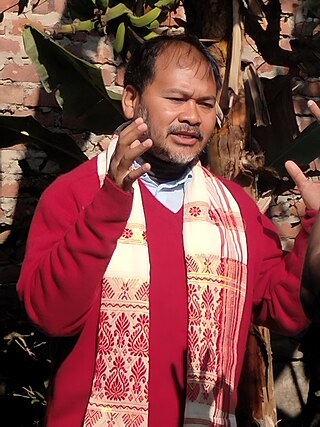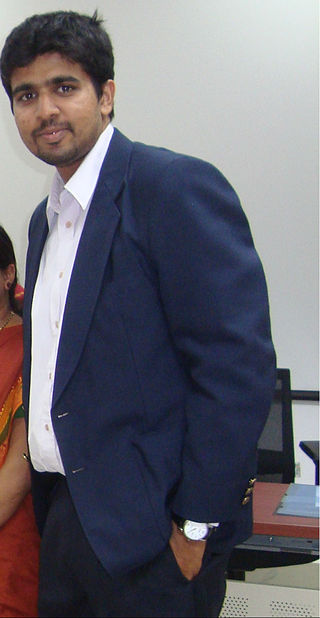Freedom of information laws allow access by the general public to data held by national governments and, where applicable, by state and local governments. The emergence of freedom of information legislation was a response to increasing dissatisfaction with the secrecy surrounding government policy development and decision making. In recent years Access to Information Act has also been used. They establish a "right-to-know" legal process by which requests may be made for government-held information, to be received freely or at minimal cost, barring standard exceptions. Also variously referred to as open records, or sunshine laws, governments are typically bound by a duty to publish and promote openness. In many countries there are constitutional guarantees for the right of access to information, but these are usually unused if specific support legislation does not exist. Additionally, the United Nations Sustainable Development Goal 16 has a target to ensure public access to information and the protection of fundamental freedoms as a means to ensure accountable, inclusive and just institutions.

The Central Bureau of Investigation (CBI) is the domestic crime investigating agency of India. It operates under the jurisdiction of the Ministry of Personnel, Public Grievances and Pensions. Originally set up to investigate bribery and governmental corruption, in 1965 it received expanded jurisdiction to investigate breaches of central laws enforceable by the Government of India, multi-state organised crime, multi-agency or international cases. CBI is exempted from the provisions of the Right to Information Act. CBI is India's officially designated single point of contact to act as the liaison with Interpol. The CBI headquarter is located in CGO Complex, near Jawaharlal Nehru Stadium in New Delhi.

The Right to Information (RTI) is an act of the Parliament of India & Delhi Legislative Assembly which sets out the rules and procedures regarding citizens' right to access information. It replaced the former Freedom of Information Act, 2000.

Aruna Roy is an Indian social activist, professor, union organiser and former civil servant. She was the president of the National Federation of Indian Women and founder of the Mazdoor Kisan Shakti Sangathan.
The Commonwealth Human Rights Initiative (CHRI) is an independent, non-partisan and nonprofit international non-governmental organisation which works towards the practical realisation of human rights in the countries of the Commonwealth.

The Indian Institutes of Technology (IITs) are a network of engineering and technology institutions in India. Established in 1950, they are under the purview of the Ministry of Education of the Indian Government and are governed by the Institutes of Technology Act, 1961. The Act refers to them as Institutes of National Importance and lays down their powers, duties, and framework for governance as the country's premier institutions in the field of technology. 23 IITs currently fall under the tenor of this act. Each IIT operates autonomously and is linked to others through a common council called the IIT Council, which oversees their administration. The Minister of Education of India is the ex officio chairperson of the IIT Council. According to data obtained through Right to Information (RTI) applications, approximately 38% of Indian Institute of Technology (IIT) graduates from the class of 2024 have not secured job placements. This is the highest percentage in the past three years, with a steady increase from 19% in 2021 and 21% in 2022.
Nikhil Dey is an Indian social activist. He works for the Mazdoor Kisan Shakti Sangathan, Suchna Evum Rozgar Adhikar Abhiyan and NCPRI. He has worked for Right to Information, Mahatma Gandhi National Rural Employment Guarantee Act, Lokpal bill and Right to Food and other Human Rights organisations.

Akhil Gogoi is an Indian peasant leader, RTI activist, and Member of Assam Legislative Assembly from Sibsagar since 2021. He is also the founder and president of Raijor Dal since 2020. Over the years he has been leading many anti-graft movements in the state. Gogoi came to national attention after he was awarded the Shanmugam Manjunath Integrity Award in 2008 for his relentless fight against corruption. In 2010, he was awarded the national Right to Information Award by Public Cause Research Foundation for his role in exposing a Rs. 12.5 million scam in Sampoorna Gram Rozgar Yojna in the Golaghat district of Assam. Gogoi is the founder Secretary of Krishak Mukti Sangram Samiti (KMSS)- a peasant organisation based in Assam.
India Against Corruption (IAC) is a non-political anti-corruption movement in India since 2007 which rose to prominence during the anti-corruption protests of 2011. Divisions among personalities on IAC's platform eventually led to the formation of the Aam Aadmi Party.

Harsha Raj Gatty is a Right to Information Act trainer from Mangalore, Karnataka, India. He was born to a Tulu speaking family in Mangalore.
Golamunda is a town and a block in Golamunda Tehsil, Kalahandi, Odisha. Golamunda is 58 km from its district main city Bhawanipatna and 500 km from its state main city Bhubaneswar. Dharamgarh is the sub-divisional headquarters of Golamunda block.
Many Right to Information Act (RTI) activists, including policemen, have been harassed and even murdered for seeking information to "promote transparency and accountability in the working of every public authority" in India. Many face assaults on a regular basis. People seeking information from their gram panchayat and the local administration also face social ostracism. A few activists who sought information under RTI related to MNREGA scams, were killed. Many threats and attacks go unreported by the media.

Centre for Public Policy Research (CPPR) is an independent non-profit research organization located in Kochi, India. It was established in the year 2004. It conducts professional research, integrating developments in the areas of education, livelihood, governance, urban reforms and environment. The four focus study centers are: CPPR Centre for Urban Studies, CPPR Centre for Comparative Studies, CPPR Centre for Strategic Studies and CPPR Academy.
Parivartan (Transformation) is a grass-roots activism organization based in the Sundar Nagari area of New Delhi, India. During the 2000s, Parivartan used Right to Information (RTI) to address citizens' grievances related to Public Distribution System (PDS), public works, social welfare schemes, income tax and electricity. By 2012, Parivartan was largely inactive, and its main leaders Arvind Kejriwal and Manish Sisodia had launched a political party - the Aam Aadmi Party.
National Campaign for People's Right to Information (NCPRI) was established in 1996 to advocate for a legal backing to citizens right to information. This resulted in the historic and pro-people law - the Right to Information Act, 2005. More recently, this movement has also campaigned for Grievance redressal bill and Whistleblowers protection bill. It is a network of organisations and individuals who use the Right to Information law to demand transparency and accountability of government, but also support the use of the RTI in various other sectors to demand accountability.

Dr. Ramaswami Balasubramaniam, known as Dr R Balu, is a development scholar, author, public policy advocate, leadership trainer known for his development work with rural and tribal people in Saragur and Heggadadevana kote Taluks of Mysuru in Karnataka, India. He founded Swami Vivekananda Youth Movement (SVYM), a development organization based in Saragur when he was 19. He is also the founder and chairman of the Grassroots Research And Advocacy Movement (GRAAM), a public policy think tank in Mysuru. After spending 26 years in development work among rural and tribal people, he pursued academic degrees in leadership, organisational development and public policy. He was the Frank T Rhodes professor at Cornell University between 2012 and 2014, and has held academic positions in Cornell and other universities. His books Voices from the Grassroots and I, the citizen (2015) are compilation of narratives and reflections of a development expert. He published Power Within: The Leadership Legacy of Narendra Modi in 2024.

Gorelal Manishi was an Indian social activist, Angika language writer, former Bihar Government Engineering Services Officer and former president of Bihar Engineering Services Association. He was also the board member of Kosi Bund Erosion Judicial Enquiry Commission as constituted by the Govt. of Bihar. He was a civil engineering graduate and also he had earned bachelor's degree in Law (LLB) while he was in engineering services.

Anjali Bhardwaj is an Indian social activist working on issues of transparency and accountability. She is a co-convenor of the National Campaign for People's Right to Information (NCPRI) and a founding member of Satark Nagrik Sangathan. She works on issues related to right to information, Lokpal, whistleblower protection, grievance redress, and right to food.
The Prime Minister's Citizen Assistance and Relief in Emergency Situations Fund was created on 27 March 2020, following the COVID-19 pandemic in India. Although it is named for the Prime Minister of India, and uses the State Emblem of India, it is a private fund, used at the discretion of the Prime Minister and the Fund's trustees, and does not form a part of the Government of India's accounts. The Fund was established for the purpose of redressing the COVID-19 pandemic in India, in 2020. While complete documentation for the Fund's establishment has not been made public, the Government of India has stated that the Prime Minister of India, Narendra Modi, is the chairman of the fund, and that trustees include the Minister of Defence, Rajnath Singh; the Minister of Home Affairs, Amit Shah, the Minister of Finance, Nirmala Sitharaman, and several corporate leaders and industrialists, including Ratan Tata, and Sudha Murty.
Uttarakhand Information Commission is an autonomous and statutory body constituted as per The Right to Information Act, 2005 by the state government of Uttarakhand through a notification in official Gazette. The commission will have one State Chief Information Commissioner (CIC) and not more than 10 State Information Commissioners (IC) to be appointed by the Governor on the recommendation of the committee consisting of the Chief Minister as chairperson, the Leader of the Opposition in the Legislative Assembly and a state Cabinet Minister nominated by the Chief Minister.










